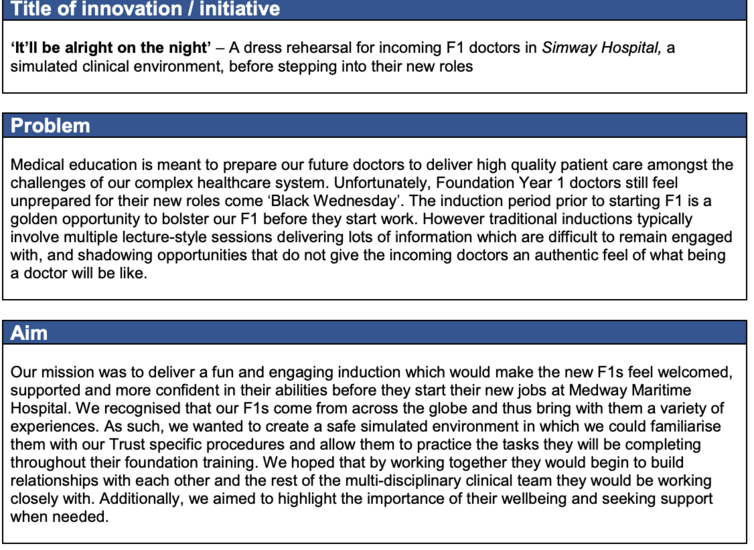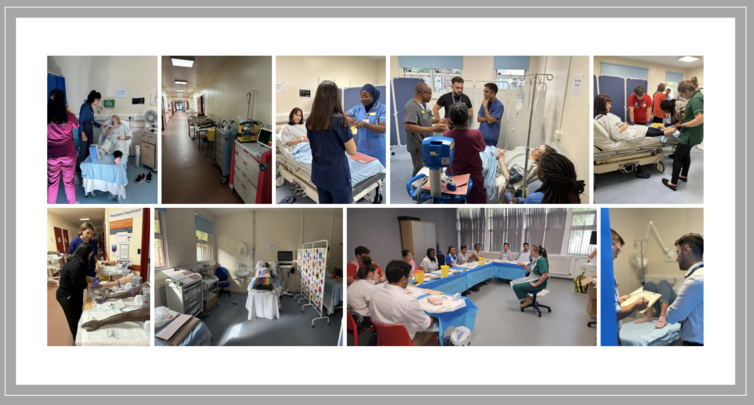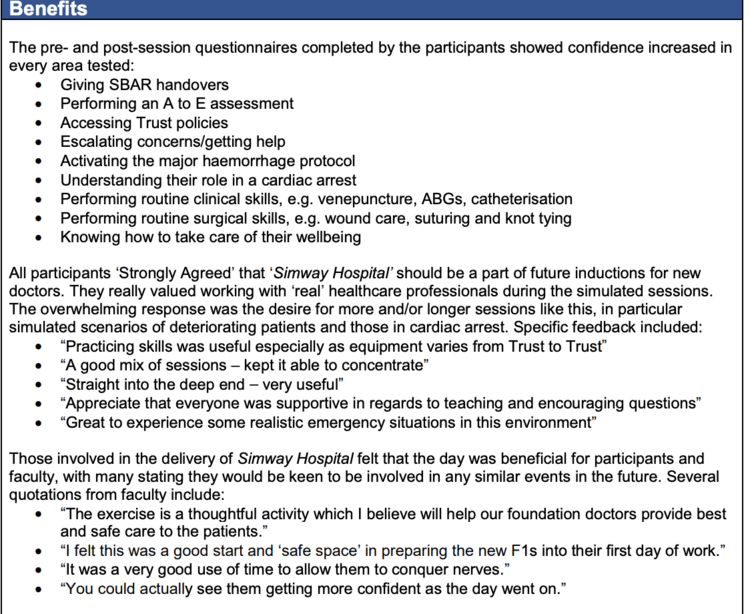
A wide range of faculty were involved in the planning and delivery of the day including the medical education and simulation teams, doctors (ranging from foundation to consultant from a variety of clinical areas), nurses, pharmacists, and the Acute Response Team. The expertise of our interprofessional faculty was used to create a realistic experience which represented what would be expected of and for the new F1s. These faculty members ‘played themselves’ throughout the day, for example the paediatric consultant was available for when the participants wished to discuss/escalate their concerns about the simulated paediatric patient in DKA.
The timetable for the day involved all the new doctors rotating through a variety of stations. The stations focusing on clinical procedures such as the basic surgical skills (knot tying, suturing and wound care) and catheterisation were facilitated by clinical staff. A wellbeing and mindfulness station provided a place for new doctors to raise their concerns, discuss ways of looking after their wellbeing and be signposted to helpful resources and services. Finally, the simulated ward round and cardiac arrest stations allowed students to practice both technical and non-technical skills with representatives from the multidisciplinary faculty they will work with throughout their foundation years at Medway. During the simulated ward round the participants took a history and examined simulated patients (played by our medical education staff) before handing over to a senior clinician to collaboratively create a management plan.

The participants had to actually carry out any necessary tasks within this process including bleeping, ABGs, cannulation, prescribing. The cardiac arrest station involved a group of participants playing the cardiac arrest team, supported by faculty members, managing the simulated arrest using the procedures and equipment they will use in real life.

You can read and download the full project report HERE

